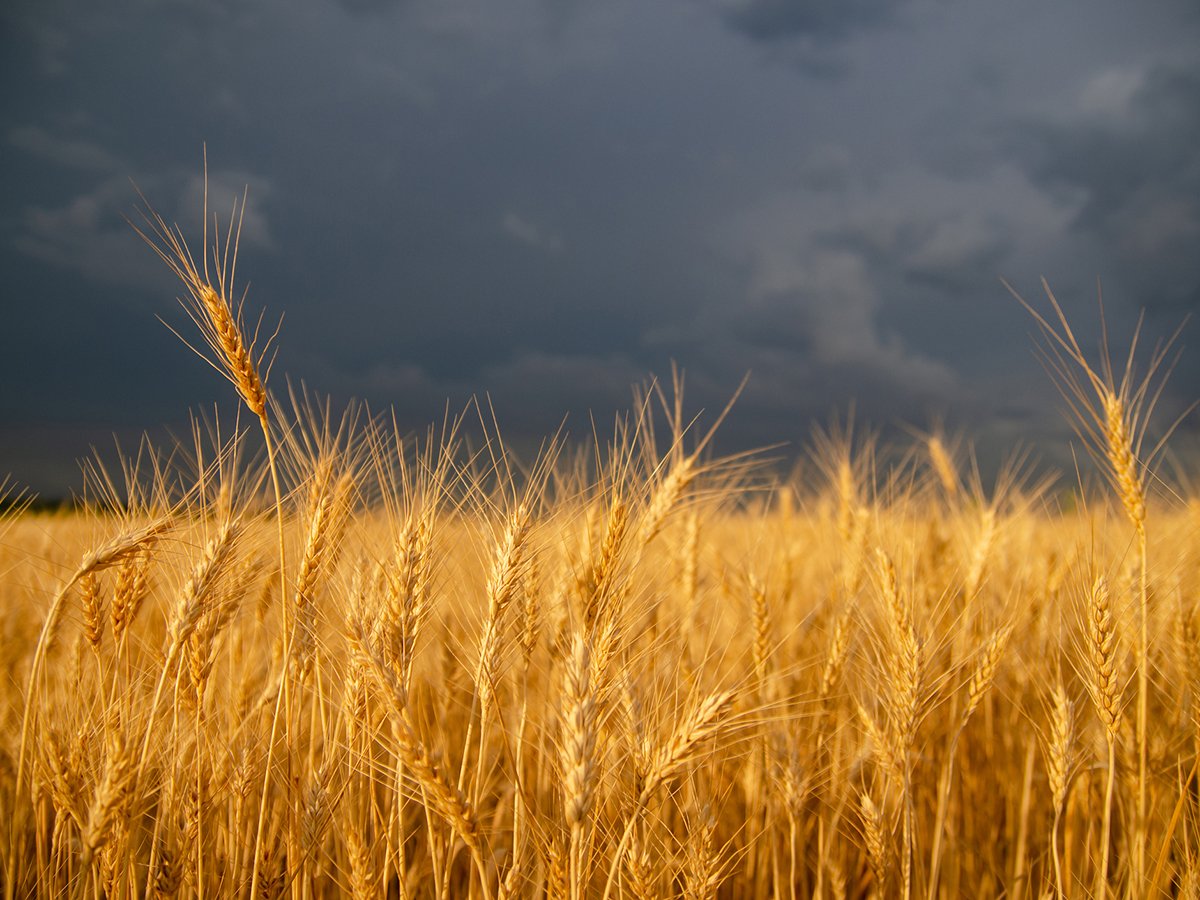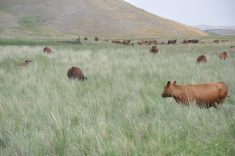Organics’ right to farm threatened
The organic sector in Saskatchewan is thriving. There are 1,025 organic producers, processors and organic sector businesses in the province with over 1.175 million acres, 29 percent of all organic acreage in Canada. The global market for organic products is over $250 billion annually.
All certified organic farmers must comply with the Canada Organic Standard, which prohibits the use of genetically modified organisms, and that includes products of gene editing. But the Canadian Food Inspection Agency is proposing to exempt some gene-edited seeds that have no foreign DNA from Part V of the Seeds Regulations.
Read Also

Late season rainfall creates concern about Prairie crop quality
Praying for rain is being replaced with the hope that rain can stop for harvest. Rainfall in July and early August has been much greater than normal.
This would mean some GM seeds could enter the market without any government approval or notification process. The CFIA is suggesting seed companies could voluntarily let the government and farmers know about these exempted gene-edited seeds coming to market.
The minister of agriculture and agri-food, the honourable Marie-Claude Bibeau, is responsible for making the final decision on this issue and she is likely to make the decision soon. Organic farmers need to know which seeds are GM so they can buy non-GM seed and take measures to avoid contamination from nearby GM crops.
Organic farmers need a mandatory public registry of all GM seeds. Without a mandatory public registry, organic farmers cannot meet the requirements in the Canada Organic Standard, so we would not be able to sell our grain into the organic market and it would put our farms out of business.
Consumers will also lose their ability to choose non-GM food.
We have no desire to stop non-organic farmers accessing gene-edited seeds, but our ability to farm organically is being threatened. Minister Bibeau can protect organic farmers by making sure there is full disclosure of all GM seeds by requiring a mandatory public registry.
SaskOrganics is calling on organic farmers, and all consumers who want an organic choice, to call the minister’s office in Ottawa at 613-995-2024 to tell minister Bibeau, “no hidden genetically modified seeds.”
Garry Johnson,
SaskOrganics president
Crown land lease changes harm producers
For the past seven years, ranchers and producers in Manitoba have seen their way of life undermined by the Progressive Conservative government. The changes brought in under Brian Pallister and his minister of agriculture, Blaine Pedersen, to the crown land lease system were done without consultation or regard for the impact it would have on Manitoba producers.
Ranchers and farmers faced massive increases in the cost of leases. At the same time, they were forced to compete against large, out-of-province corporations while previous provisions like unit transfers were eliminated. This meant that ranchers and producers could not assemble the land they need to properly raise a herd, nor could they ensure that younger ranchers, just starting out, could get a foot in the door to make their business viable.
I’ve spoken to a lot of producers in our province who are fed up. Farmers, ranchers and producers have weathered flooding, drought and a pandemic. But it’s the actions of a government that doesn’t listen that is doing the most damage to the people who help feed our province.
The Stefanson government, unfortunately, is doing just what Brian Pallister did — ignoring people outside Winnipeg while tilting the playing field towards big business away from regular producers.
I know it’s been a difficult few years, and I know, given all the challenges, it can be hard to see how things can improve. But the way to make things better starts with listening to what ranchers and producers on the land have to say: that means better supports for young producers in this province, it means the reinstatement of provisions like unit transfers and it means ensuring any changes to crown lands are driven by the producers.
Ron Kostyshyn,
Manitoba NDP candidate in
Dauphin and former provincial
agriculture minister
Input approval system must be improved
There were two stories in the March 9 edition that prompted me to comment.
The first was an op ed by Kody Blois that outlined the problems with approvals of new technologies and products by the Canadian Food Inspection Agency and the Pest Management Regulatory Agency. I couldn’t agree more.
This problem has only worsened as technology has allowed us to measure parts per billion where we used to measure parts per million. The bureaucracy needs to understand that zero does not exist. The next hurdle is to find someone in the ivory tower to sign the approval and risk the backlash.
The second was an article written by Robert Arnason taking the NFU to task for their claim regarding the CFIA. The examples given, rather than prove the NFU wrong, could be viewed as substantiating the claim. There were no members of Crop Life quoted, only researchers. The researchers had developed products that could reduce the need for chemicals produced by Crop Life members and thus reduce demand and income.
I am not a member of the NFU, and in fact have been known to disagree on several occasions.
This is not unlike the “hairy canola” developed publicly and available to be inserted into new canola varieties, and perhaps reduce the need for pesticides owned by Crop Life members.
A skeptic might say that CFIA and PMRA are captured by Big Ag for the reason to prevent these technologies coming to market.
We already know that CFIA has turned from science-based decision making in the ruling on animal transport when declaring that the decision didn’t add harm to the animal — it didn’t help the animal either — and there was no reason to reverse the regulation.
Our government and its regulators have no interest in having a healthy, productive agriculture industry in Canada.
Don Dewar
Dauphin, Man.
Variety registration requirements add costs
In comment to Open Forum contributor Cam Goff (page 12, March 2) is the old parable that “there are three sides to every story: your side, my side, and the truth.”
If a “corporation” invests in the costs of breeding, testing and registering a new variety, it seems logical they deserve a return on that investment. The performance (yield) data is readily available.
A grower can easily do the math, and with the royalty expense added in, can then make the decision to use or not.
My experience was focused on forage crops and hybrid corn. On these crops, the trials focused on yield required to meet registration and were highly questionable. Where can land adequately uniform be found over a one to two acre plot that will produce data for a perfect comparison?
I clearly recall one forage trial, when inspected by the committee in May, was perfectly uniform. A return to that site in August was eye opening, with some plots reduced to small, wilted plants — more a measure of sub-soil strata than yield performance.
For these crops, variety registration requirements only added delay and heavy costs.
Martin C. Pick
Cavan, Ont.
















